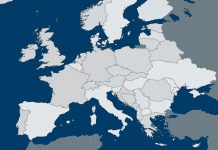There are too many unknowns to count in the Ukraine war. From the upcoming spring offensive to covert U.S. intelligence operations, mysteries abound. But perhaps none is more important than the question surrounding the Russian Ministry of Defense, its general staff, the Wagner Group and President Vladimir Putin’s place among them. This system of relationships has become even more complicated now that Ramzan Kadyrov, the head of Chechnya, has interfered and promised to replace Wagner in Bakhmut.
Moscow enlisted Wagner when it was unable to decisively defeat Ukrainian forces on its own. Wagner is a private military force, technically under contract with part of the Russian government. The mercenaries it employs are commanded not by the army but by a civilian. They number some 25,000 to 30,000 – slightly smaller than Russia’s conventional armed forces but not dramatically so – and occupy about 30 kilometers (19 miles) of the multiple thousand-kilometer-long frontlines. And yet Wagner is the only contingent of Russian forces that regularly advances on areas controlled by Ukraine.
Using private militaries is hardly a new phenomenon, and Wagner has operated in the Middle East and Africa for years. But what it is doing in Ukraine is unique. Not only is it waging its own war, but it is also currently leading the battle in Bakhmut.
The mystery surrounding its relationship with the Russian military is evidenced by a statement made last week by Wagner chief Yevgeny Prigozhin, who said that “military bureaucrats” had deprived his forces of artillery and ammunition, and that he is therefore withdrawing them from the area and handing Bakhmut over to Russian conventional armed forces.
The battle of Bakhmut has never gone well, but at this point, with the forces that have already been lost in the fight, victory is less strategic than political. For the Russians, losing or abandoning the battle would send the wrong signal to the enemy and its population. But the regular Russian army was not able to impose its will on Bakhmut and in general has not been able to break Ukrainian forces. Introducing Wagner there served several purposes. It increased the size of the force that could be deployed, and it brought in a ruthless force with plausible deniability.
In that sense, cutting off artillery and other ammunition makes absolutely no sense. (There is a hint of confirmation from Moscow that it did, but Ukrainian military reports suggest artillery fire hasn’t let up.) Even if Russia believed cutting off Wagner made military sense, allowing the leader to sound off like this doesn’t. Militaries and their political masters disagree all the time, but a rift this visible is rare.
The mystery, then, is two-fold. Why would the general staff want to cripple Wagner? And why would it do it so publicly? There were financial and technical steps that could have prevented it from happening. For it to have come this far, a malfunction must have occurred at either the senior staff or the ministry level.
If it is deliberate, what could it mean? It could be meant to stop a coup that Wagner might have planned, but a drone might have done a better job. It could be a plan by elements in the government aligned with Wagner to try to demonstrate that the Ukraine war is being lost, or at least not won, by the Russian command. If the view was held that the senior command and the ministers are losing the war, then advertising their irrationality through Wagner would make sense, potentially adding to any movement to remove them. If Putin felt that the current command was failing, but that too many senior officers supported it for it to be removed, this memo from Wagner would be an excellent tool to make the point. (That is, unless the point is to show that Putin has lost control of the situation.)
For now, this is all academic, if still important. The Kremlin appears to have given in to Prigozhin’s demands, and it seems as though Wagner will stay in Bakhmut. Moreover, Gen. Sergey Surovikin, whom Prigozhin described as the only capable general in the Russian army, has been appointed to liaise between Russia and the mercenaries.
But no matter how this plays out, the war is a fundamentally political problem. It has not gone as expected, and no effective alliance has emerged to change that fact. In this situation, one must either mount a massive offensive, the government and Wagner working side by side, or prepare for a negotiation as favorable as possible – one that absolves the emerging leadership of any wrongdoing.





 The Geopolitics of the American President
The Geopolitics of the American President